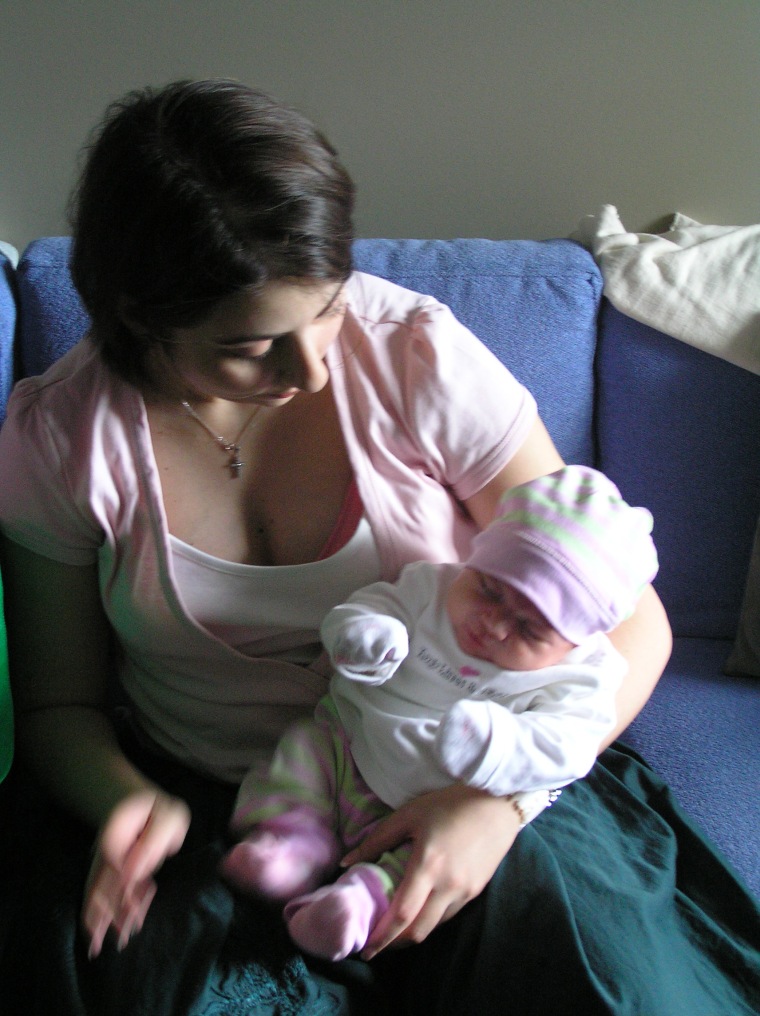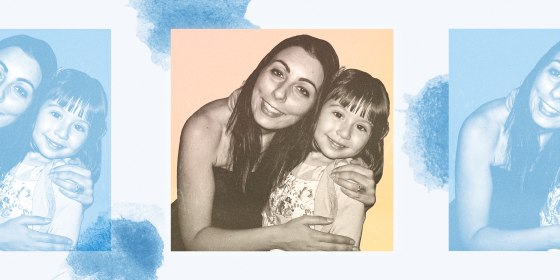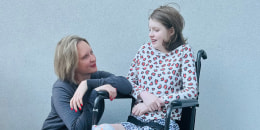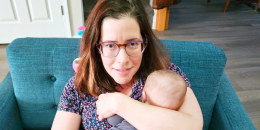The older I get, the more I see mental health like any other self-care. Would I leave the house without brushing my teeth? Would I skip my three meals a day? Not shower? Of course not. In a world full of mental health triggers streaming through our social media feeds, I think we all need to be proactive in our approach to mental health — at least, this is what I teach my teenage daughter. If you don’t eat for the day, you’ll probably pass out. If you don’t manage your mental health, you’ll probably struggle.
I don’t sugarcoat things. Mental health is not a topic kept in the hallway cupboard in my household. It’s out on the kitchen table with dinner, up for discussion whenever it needs to be. I’ve never really had a choice in the matter. As a single parent who has struggled with anxiety, depression and complex-PTSD her whole life, if I’m not OK, my whole household falls apart. As a child of divorce, my daughter has also had a hard life being subjected to the backwards and forwards of tumultuous co-parenting. Now she lives with me full-time, but that doesn’t mean everything is OK. We can easily set each other off and things can turn ugly, quickly. Sure, friends and family can provide some support, but I’m her mom. I need to be disciplined and organized in every aspect of my life, from chores to budgeting, and it’s no different with mental health.
I haven’t always been like this. As a teenager, I was suicidal. Growing up in Melbourne, Australia, in the Greek community, the term “mental health” was unheard of. Substituted in its place were words like “crazy” or “ntrobi” — shame. It was all swept under the cultural carpet. Mental health issues were repressed, silenced, medicated. As the child of Cypriot migrants who fled poverty and war, there were more crucial matters to be concerned about in my household, like putting food on the table.
Mental health issues were repressed, silenced, medicated. ... As the child of Cypriot migrants who fled poverty and war, there were more crucial matters to be concerned about in my household, like putting food on the table.
In my late teens, I eventually began seeing a psychiatrist and was put on medication. But years later, after I married and it was time to have a child, I had to stop the medication — and that’s when I realized that although the medication helped in some ways, it had also numbed my true self. Everything inside me exploded like a volcanic eruption. By that time I had some tools under my belt, like years of retraining my negative thoughts into positive ones through cognitive behavioral therapy (CBT). In addition to this, my psychiatrist recommended exercise to replace the dopamine the medication had provided, and writing out my feelings.
More on parenting and mental health
Being an artist is considered a lazy person’s job in my culture, so in secret, I started writing my fiction manuscript, “We Never Said Goodbye,” a love story steeped in the migrant experience. I didn’t realize it at the time, but my psychiatrist was essentially recommending art therapy. This was my first step in reclaiming my life and leaving my job as a computer programmer to become a writer, poet and performer, something I always wanted, but couldn’t fight for. As a child of migrants, my parents sacrificed their homeland and family for my siblings and me, so a financially secure job was the only option.
Not long after the birth of my daughter, I left my marriage, culture and religion to find who I was. Raised in a strict, Greek Orthodox culture and marrying young at 22, all my life I was taught to do what I was told, and to serve men. I wanted to be a role model for my daughter, but the sad truth was that I was not as emotionally mature as someone might expect of a woman my age. I felt like Lorelai in “Gilmore Girls.” I didn’t want the same for my daughter, so I pro-actively got her into therapy during my separation from her father.

Since taboo issues were so closeted in my upbringing, I wanted to be open with her. At age-appropriate moments in her life, I have told her about my struggles and how I overcame them, the things that worked for me, the things that didn’t. I told her I took medication in the past but I don’t anymore, and that I see a psychologist. When I was diagnosed with complex-PTSD and started hypnosis and psychotherapy, I told her about that, too. I have been able to pass on what I have learned to achieve the best mental health outcomes for her.
But as she entered her teen years, I soon realized I needed to do more. She was mimicking some of my bad habits around emotional self-care. I needed to implement mental health hygiene into our everyday lives. I began meditating. I learned how sugar can affect my mood. I started understanding my mind more, how social media affects my brain, how reading calms me. My daughter and I started reading and meditating every morning.
Don’t get me wrong — there are hard periods where she abandons all her good practices. Some days are so hard I don’t know how I’m surviving. On those days I put my faith in looking after myself and treating myself with compassion. By keeping myself on track, I find that even though she has veered away, she comes back and joins me. Those of us who have teenagers know nagging never works.
Some days are so hard I don’t know how I’m surviving. On those days I put my faith in looking after myself and treating myself with compassion. By keeping myself on track, I find that even though my daughter has veered away, she comes back and joins me. Those of us who have teenagers know that nagging never works.
Sometimes I have to play tough mum and put rules in place that are mental health specific. You only get your pocket money if you meditate, if you exercise, if you don’t sleep with your phone in your room, if you do your chores — because that helps, too. Self-care in all aspects of your life helps with mental wellbeing. If your house is a state of disarray, it just adds to feelings of helplessness.
Today, my mental health is the best it has ever been. I explain to my daughter that the world is hard, but that we must draw on the strength inside and get on with things. The anxiety and depression never really completely go away; we just learn to manage it through exercise, diet, meditation, art, keeping good company, not being on our phones too long. I try to be the best role model I can be. And it’s fascinating, seeing how she mimics me. She will have a head start in life — the head start I did not have — because she has learned from a young age how to manage her mental health issues. And these are tools she will carry with her forever.
Throughout the month of March, TODAY.com is celebrating women across generations who have made history and continue to move the conversation forward by breaking stigmas, sparking dialogue and inspiring the next generation.










